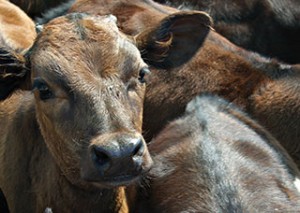Clones, the Commission and Ethical Contortionism
The European Commission’s proposed Directives on clones in the food chain fall woefully short of what citizens want and the Parliament demands. The draft laws are not all they appear to be at first glance. One draft Directive “provisionally prohibits” cloning farm animals and the sale of farm clones or clone embryos. The other “provisionally prohibits” the sale and import of food from clones. Once enshrined in law the Directives would be reviewed to enable any “improvements” in cloning techniques that reduce animal suffering to be taken into account in future regulation. Any prohibition of cloning is welcome, based as it is on the acknowledgement that cloning for food is unwanted and unconscionably cruel, but it‘s not enough. The draft laws do not prohibit the sale of food from the offspring of clones, which renders them next to useless in the real world. The Commission emphasises, “[C]loning is so expensive that its use for food production is not lucrative.” This is a tacit admission that the proposed measures don’t actually tackle the real problem – food from cloned offspring.
 By Eve Mitchell
By Eve Mitchell
The European Commission’s proposed Directives on clones in the food chain fall woefully short of what citizens want and the Parliament demands.
The draft laws are not all they appear to be at first glance. One draft Directive “provisionally prohibits” cloning farm animals and the sale of farm clones or clone embryos. The other “provisionally prohibits” the sale and import of food from clones. Once enshrined in law the Directives would be reviewed to enable any “improvements” in cloning techniques that reduce animal suffering to be taken into account in future regulation.
Any prohibition of cloning is welcome, based as it is on the acknowledgement that cloning for food is unwanted and unconscionably cruel, but it‘s not enough.
The draft laws do not prohibit the sale of food from the offspring of clones, which renders them next to useless in the real world. The Commission emphasises, “[C]loning is so expensive that its use for food production is not lucrative.” This is a tacit admission that the proposed measures don’t actually tackle the real problem – food from cloned offspring.
Buried in the draft law on cloning on farms is the telling phrase, “To preserve the competitiveness of Union farmers, the proposal does not regulate reproductive material of clones.” This means EU farmers can import and used the reproductive material from clones and sell the resulting food into the food chain. This ignores the strong wishes of the EU Parliament, which voted for a full ban on food from clones and offspring in 2009.
The tabled proposals do not even require labels on foods from clone offspring, with the Commission saying labels would be unjustified because, “For official controls, checking the accuracy of statements on labels would require in particular for food from offspring and descendant meticulous investigation into the accompanying documentation and thus bind considerable resources.”
We have an extraordinary admission here that the cruelty of cloning creates sufficient ethical discomfort to “suspend” the practice, but those ethics are apparently for sale, and when the price is too high they go out the window. The Commission is effectively saying the EU could act ethically and ban food from clone offspring, we just don’t want to pay for it. It’s a fine example of what happens when food technology, from GM to nanotech to cloning, is allowed to run too far ahead of regulation – corporate interests stake a claim and regulators can’t find their way out of the political swamp that creates.
A considerable complication is that counties where cloning happens, including Argentina, Australia, Brazil, Canada, and the United States, tell the Commission they “could not indicate to what extent” cloning takes place. EU law says food must be fully traceable. Coupled with the serious traceability problems exposed by the contamination of EU beef supplies with horsemeat, these admissions about cloning should give Europeans serious cause for concern about what they are eating.
The Commission proposals on cloning are incomplete in crucial areas that render the overall approach to cloning in the EU a logical and ethical nonsense. If cloning is unethical, and it is, the offspring shouldn’t exist. Turning a blind eye to the suffering caused by cloning in other countries in order to facilitate the unwanted, unlabelled sale of food from those offspring is a fudge too far.
If cloning is banned, and it should be, the acceptance of unethical production of clones elsewhere should not be obscured by fine words about respecting the wishes of consumers here in the EU. Cloning is wrong, and we don’t want anything to do with it in our food system. The Commission knows this and needs to get on with it.


